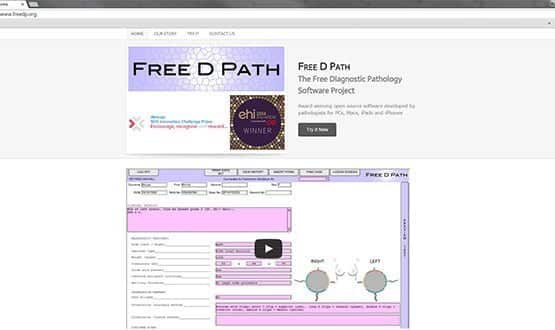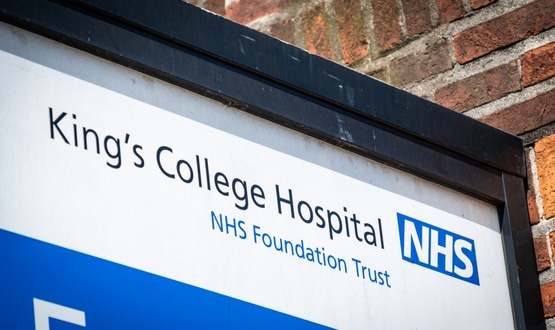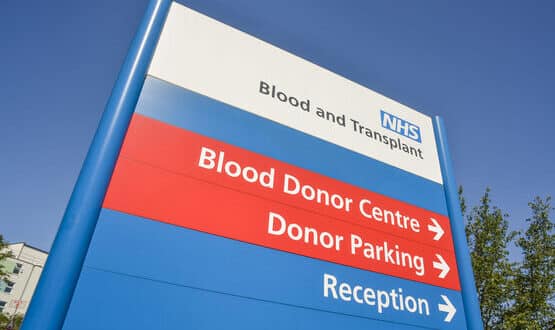An open path to success
- 2 March 2015

Back in the 1980s, when Fred Mayall was still at school, he had his first experience of computing. It’s fair to say, however, that he didn’t really see the potential of technology.
Although as a teenager, he wrote the code for a flight simulation programme for RAF cadets – with working graphics and a chipmunk in the cockpit – he had no thoughts of making a career of it.
“I didn’t think computers were going to go anywhere,” he laughs. “It was interesting, but that’s about it.”
Fast forward a few decades and Mayall – now a consultant clinical pathologist at Taunton and Somerset NHS Foundation Trust – is singing a different tune.
As a winner in last year’s EHI Awards, where he took the category of ‘best use of IT to support clinical treatment and care’, he is not only realising the opportunities that computers can bring, but is also encouraging clinical colleagues to do the same.
Important; to those who need it
The Free Diagnostic Pathology Software Project is an open-source reporting system designed to speed up and improve cancer diagnosis.
Mayall says this was an area in which there was a crying need for improvement; but the speciality was too narrow to be of much interest to big health IT players.
“Many labs across the UK are still using antiquated reporting software and upgrading is expensive. But even modern systems often lack the technology needed to report complex cases, and can be difficult to use across multiple sites,” he says.
“The problem is that what is needed is so specialist, and so bespoke, that the market for commercial solutions would be tiny. There would only be a few hundred people, if that, to sell it to. But even if something is only going to be used by a few people, that doesn’t mean those people don’t need it.”
This was really brought home when Taunton and Somerset took part in an NHS Improvement project to introduce new methodology for pathology reporting – and found the existing software simply wasn’t up to the job.
“With our computer systems it was difficult to see how we would improve the process – so we decided to make our own IT solution,” Mayall says.
Build, test, improve
Mayall had already worked with FileMaker Pro, the database management system, and found it relatively easy to learn, so was comfortable using it to develop the solution himself. Indeed, he believes that it is so accessible that other clinicians would be able to follow suit.
What’s more, it’s hugely versatile in terms of where it can be used, which makes it particularly acceptable to the clinical community. “When people want you code this, or measure that, it’s not helpful when your computer takes ages to log-on,” he says. “But this works beautifully on iPads or iPhones – wherever you are, you are in contact with the database.”
The project used Lean principles to create a system that built improvements into workflow and accuracy. These included ways of cutting duplication – such as one-click extra-work requests with order tracking – and developing reporting templates defined by users.
They also made it possible to report on complex cases using benchmark proformas, for example, from the Royal College of Pathologists.
Clinician input was essential to the development of the software – in fact, it couldn’t have happened without it. “We got our clinicians to draw up their best proformas; so it’s really what they are looking for,” Mayall says.
The software was initially tested by 25 members of staff across three sites and involved reporting on more than 17,000 cases, including many complex cases that needed to capture particular data.
There was an almost immediate benefit to the department’s workflow, which meant that around 80% of cases were reported within seven days, up from 40% previously.
This improvement wasn’t entirely down to the new software, but it was an important contributor, Mayall adds. It potentially saves money too; by, for example, speeding up results for in-patients, saving on expensive bed days.
Open to all
The software supports hundreds of simultaneous users, and can be used on any computer with a web browser and access to the service. This means that the cost of installing and running it is low.
With the aim of helping to improve cancer diagnosis throughout the UK, and beyond, the software has been shared via a project website.
Thousands of visitors worldwide have visited the site since it was launched in 2012, with around one in five choosing to try it out. Of these, 90% go on to download it.
As of January 2015, the software had been downloaded some 1,300 times. “There are several downloads most days,” says Mayall, adding that it is most frequently downloaded by users in India.
There are also steps in place to help other people in the NHS to customise, adapt, and improve the software to meet their own needs. Mayall describes how he has worked with igeek to support the software at different sites. “In the NHS sometimes people need a support company to help with confidence in using it,” he says.
He has founded a privately owned spin-off company, part of which is owned by the trust, with the rest owned by private investors.
They are also setting up an open-source community interest company called Open Pathology, to be formed by NHS trusts that want to adopt the software and develop it further.
The beauty of the software, he adds, is that it can be adapted for use in different clinical areas. “If it works for endoscopy, it works for ENT,” he says. “What this project shows is that clinicians can develop their own IT solution, that meets their needs, and which has the obvious benefit of giving us a highly customised solution at very little cost.
“But it also means that we can share our processes and knowledge with others working in what are often very small fields, improving practice and driving up standards.
“It really puts the power in the hands of medical staff to get the software they want and need to deliver a better service to patients.”




